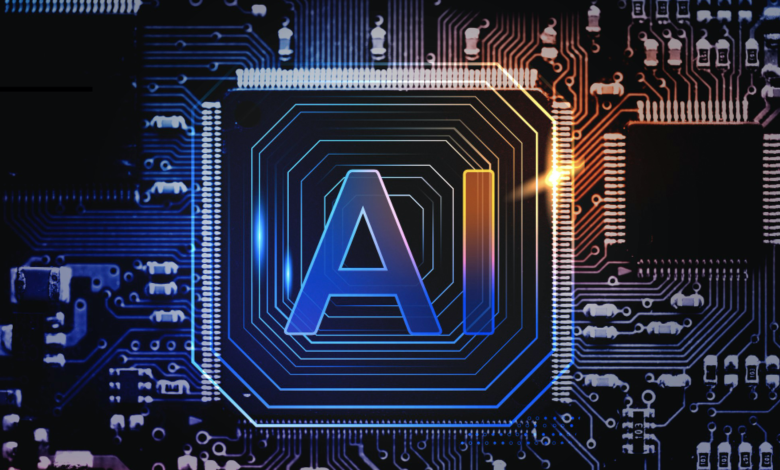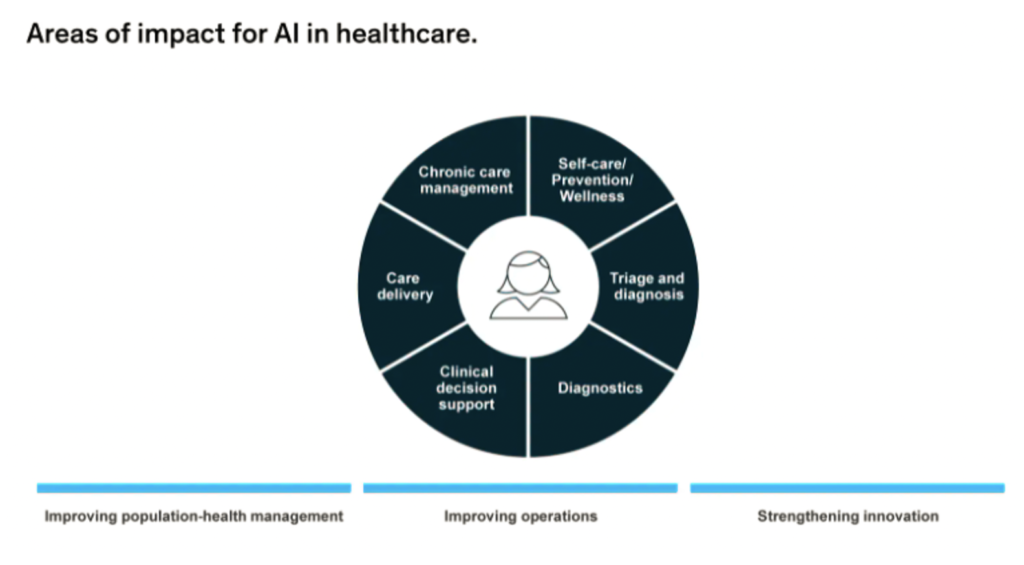
Artificial intelligence (AI) is transforming the way we interact, consume information, source goods, and services across different industries. Similarly, in the healthcare industry, AI based solutions are already changing the way patients experience, how healthcare professionals and institutions operate, therefore healthcare institutions are increasingly partnering with AI software development companies.
The healthcare industry has been witnessing some very exciting technological advancements over the years such as new medications, robotic-assisted surgeries, and the introduction of AI. These AI based systems and processes are enhancing the accuracy and efficiency of healthcare professionals and their treatments.
New advancements and innovations in AI would directly affect the future of the healthcare industry especially after the outbreak of the COVID-19 pandemic. During the spread of the pandemic, AI along with other technologies helped medical professionals cope up and cater to the needs of the patients and serve them despite the spread of virus. Since then, technological advancements and innovations are widely accepted and implemented in the healthcare industry for the betterment of patients and healthcare institutions.
AI is being utilized in the healthcare industry in different ways ranging from online appointment scheduling to online check-ins to digitization of medical databases to reminders for appointments. The use of AI in the healthcare industry can be classified into 3 broad categories:
- Patient oriented AI
- Healthcare professional oriented AI
- Administrative oriented AI
The use of AI is penetrating into different tangents of the healthcare industry, therefore, advancements in AI implies advancements in the healthcare industry. AI could provide substantial aid to healthcare professionals. The future of AI in healthcare would be able to cover tasks ranging from the most complex to simplest of situations such as research on drug development, better diagnostics, analysis of health plans, health monitoring, online consultation, and database management.
AI would be increasingly playing a prominent role in the healthcare industry in the coming years due to its continuous advancements in computing power, and learning algorithms. AI would soon be stepping up its role in the healthcare industry and would play as a partner with healthcare professionals & institutions.
It will be well-suited to manage repetitive manual processes, large databases to mitigate errors. For example, an overworked healthcare professional might skip on a detail like vulnerability to a certain drug’s side-effect but an AI based system will not skip such a detail, rather it would help the healthcare professional while writing a prescription for the patient.

The importance of AI would increase in the future due to the nature of the healthcare industry where there is an increasing need for accuracy and comprehensiveness. It will support the future needs of the healthcare industry by analyzing huge databases for patients and healthcare institutions.
Further, it would help healthcare professionals to have a better focus on their patients. Getting this support and assistance from AI technology is clearly a positive sign for all the concerned patients, their families and healthcare providers.
It is highly unlikely that AI based technology might replace healthcare professionals in the future as it lacks human skills like empathy and persuasion, rather there is a high possibility that healthcare professionals get acquainted with the fundamentals of AI technology as well as how AI-based systems can provide them with better support for their patients.
Patient engagement has been one of the concerns for healthcare professionals. The more patients proactively participate, the better the outcomes for their treatments, resource utilization, and financial outcomes. AI based systems are increasingly addressing these factors by their solutions.
AI can be used for various processes like claims processing, documentation, revenue cycle management, etc. Healthcare institutions are also using AI based chatbots for patient engagement, telehealth, counseling & mental wellness, etc. AI is already increasing convenience and efficiency, reducing costs, mitigating errors and making the overall process easier for patients to receive healthcare services.
While individual AI technology can help in contributing value, the larger potential of the technology lies in the synergy generated by using multiple AI based systems across the patient journey starting from scheduling an appointment to diagnosis, to treatment to continuous health maintenance.
Advancements in AI based solutions would lead the healthcare industry to:
- Networked hospitals and connected care
- Enhanced patient and healthcare admin experience
- Accurate diagnostic processes
- AI-based predictive care
- AI-powered healthcare assistants
For the continuous advancements and adoption of AI based systems to take place in the healthcare domain, it is very essential for AI custom software development companies to get their solutions approved by regulators and healthcare authorities.
Advancements in AI technology are getting a lot on the table for the healthcare industry but it also comes along with its own challenges. There has been a concern that AI might lead to automation of jobs and displacement of the workforce.
The integration of AI solutions with the healthcare industry is offering great potential. The impact of AI solutions on the global healthcare industry looks very promising but it needs a lot of research and development. The first step will be to address the major concerns which are delaying the adoption of AI solutions in the healthcare domain.
Now that we have understood that a part of the healthcare industry’s glorious future is dependent on AI based solutions, it is clear that there would be an increasing demand for new and innovative AI based solutions to achieve exponential growth in the healthcare industry.




